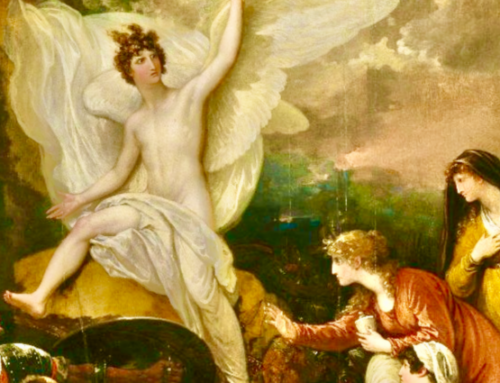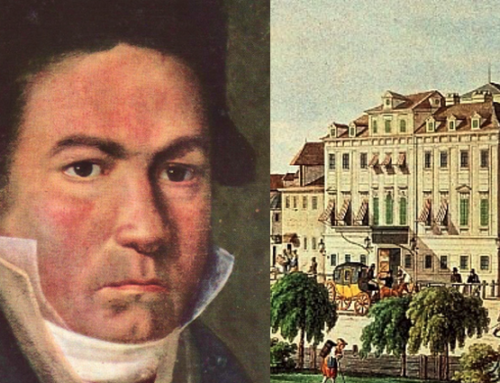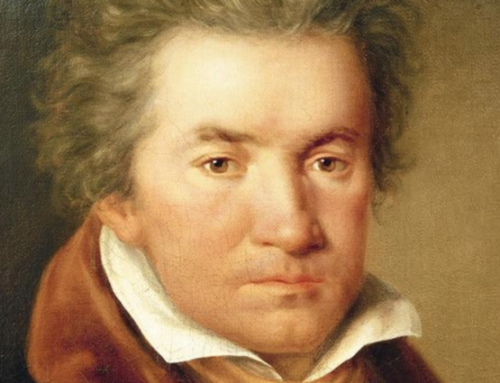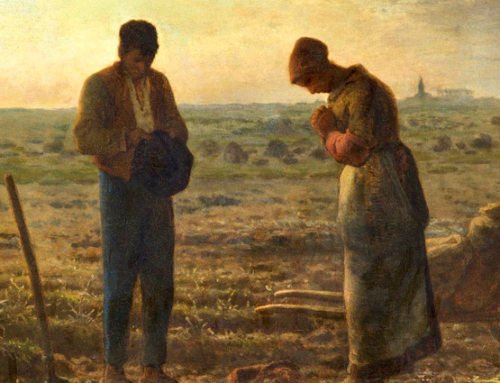 “When I open my eyes I must sigh, for what I see is contrary to my religion, and I must despise the world which does not know that music is a higher revelation than all wisdom and philosophy, the wine which inspires one to new generative processes, and I am the Bacchus who presses out this glorious wine for mankind and makes them spiritually drunken. When they are again become sober they have drawn from the sea all that they brought with them, all that they can bring with them to dry land. I have not a single friend, I must live alone. But well I know that God is nearer to me than to other artists; I associate with Him without fear; I have always recognized and understood Him and have no fear for my music — it can meet no evil fate. Those who understand it must be freed by it from all the miseries which the others drag about with themselves.
“When I open my eyes I must sigh, for what I see is contrary to my religion, and I must despise the world which does not know that music is a higher revelation than all wisdom and philosophy, the wine which inspires one to new generative processes, and I am the Bacchus who presses out this glorious wine for mankind and makes them spiritually drunken. When they are again become sober they have drawn from the sea all that they brought with them, all that they can bring with them to dry land. I have not a single friend, I must live alone. But well I know that God is nearer to me than to other artists; I associate with Him without fear; I have always recognized and understood Him and have no fear for my music — it can meet no evil fate. Those who understand it must be freed by it from all the miseries which the others drag about with themselves.
Music, verily, is the mediator between intellectual and sensuous life.
Speak to Goethe about me. Tell him to hear my symphonies and he will say that I am right in saying that music is the one incorporeal entrance into the higher world of knowledge which comprehends mankind but which mankind cannot comprehend.”
—Beethoven’s words, as reported by Elizabeth Brentano, quoted in Beethoven: His Spiritual Development, by J.W.N. Sullivan
The Imaginative Conservative applies the principle of appreciation to the discussion of culture and politics as we approach dialogue with magnanimity rather than with mere civility. Will you help us remain a refreshing oasis in the increasingly contentious arena of modern discourse? Please consider donating now.
We hope you will join us in The Imaginative Conservative community. The Imaginative Conservative is an online journal for those who seek the True, the Good, and the Beautiful. We address culture, liberal learning, politics, political economy, literature, the arts and the American Republic in the tradition of Russell Kirk, T.S. Eliot, Edmund Burke, Irving Babbitt, Wilhelm Roepke, Robert Nisbet, Richard Weaver, M.E. Bradford, Eric Voegelin, Christopher Dawson, Paul Elmer More, and other leaders of Imaginative Conservatism. Some conservatives may look at the state of Western culture and the American Republic and see a huge dark cloud which seems ready to unleash a storm that may well wash away what we most treasure of our inherited ways. Others focus on the silver lining which may be found in the next generation of traditional conservatives who have been inspired by Dr. Kirk and his like. We hope that The Imaginative Conservative answers T.S. Eliot’s call to “redeem the time, redeem the dream.” The Imaginative Conservative offers to our families, our communities, and the Republic, a conservatism of hope, grace, charity, gratitude, and prayer.
The featured image, uploaded by Rijksmuseum, is a portrait of Ludwig van Beethoven. This file is made available under the Creative Commons CC0 1.0 Universal Public Domain Dedication, courtesy of Wikimedia Commons.







A case can be made that he was the greatest.
At the very least he was the Beatles, Cream, Zeppelin of his day.
As much as I love Beethoven’s music, (nearly beyond all else, other than Palestrina, whom Ludwig owes an infinite debt of gratitude, as do all composers after his time), my dear Ludwig was theologically confused, as so many were and still are as a result of the Reformation.
Music is a bridge from mind to spirit…..given to us for those times when words simply will not do.